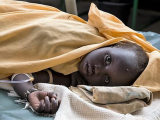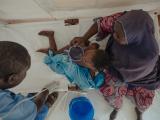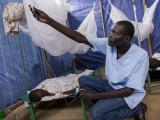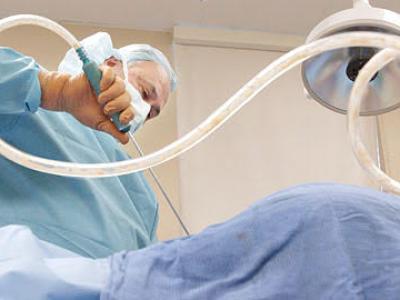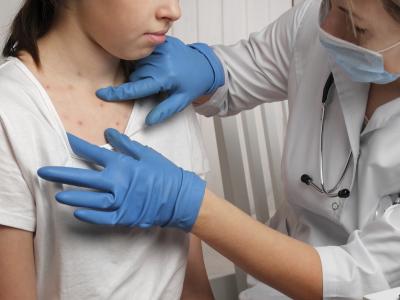Jul 11, 2011
USDA rejects proposal for unlabeled irradiation of beef carcasses
The US Department of Agriculture (USDA) has turned down a long-pending request from the meat industry to use low-dose irradiation to reduce bacteria on the surface of beef carcasses without noting the step on product labels, according to Food Safety News (FSN). The USDA said the request was lacking in technical details. The American Meat Institute (AMI), a trade group, in a 2005 request asked regulators to classify low-dose, low-penetration electron-beam irradiation of chilled carcasses as a processing aid, which would exempt it from labeling requirements. In a letter rejecting the request, Dr. Daniel Engeljohn of the USDA Food Safety and Inspection Service said the geometry of beef carcasses might lead to an uneven radiation dose and that the AMI did not define "low dose" or "low penetration." Engeljohn also said the AMI request did not address the possibility that meat from a treated carcass could be irradiated again at a later processing stage, possibly leading to an excessive cumulative radiation dose. He wrote that the AMI could submit a new request with more details and that in the meantime, meat processors can irradiate beef carcasses so long as the step is noted on product labels. AMI Foundation President Jim Hodges said the technical issues cited by Englejohn "could have been worked out" and that AMI was only asking the FSIS to begin the process of changing the labeling policy. The story noted that the meat industry dislikes the labeling requirement because it thinks consumers won't accept irradiation.
Jul 11 FSN story
Haiti continues to face cholera crisis
Haiti is continuing to face a high volume of cholera cases even though the numbers have dropped in recent weeks, according to a Jul 9 Associated Press (AP) report. With transmission driven by weeks of heavy rains, the cholera case count reached about 1,700 a day in mid June, three times as high as in March. The number was down to about 1,000 per day by the end of June, the report said. At a treatment center in Mirabalais, about an hour north of Port-au-Prince, the capital, the number of patients increased fivefold from April to May and has not dropped since then. Haiti's health ministry said cholera has struck at least 370,000 people and killed more than 5,500 since the epidemic started last October, according to the story.
Jul 9 AP report
Hong Kong scarlet fever cases top 800
Hong Kong's Centre for Health Protection (CHP) reported 35 more cases of scarlet fever, pushing the outbreak total to 850, according to a statement today. It still classifies scarlet fever activity as high. The latest new cases, reported between Jul 8 and today, include 25 boys and 10 girls who range in age from 3 to 18 years. The number of fatal infections remained at 2, both of which were in children.
Jul 11 CHP scarlet fever update
New gonorrhea strain resists all antibiotics
A research team from Canada's Laval University in Quebec City has identified a previously unknown Neisseria gonorrhoeae strain that resists all available antibiotics. The group presented its findings at the annual meeting of the International Society for Sexually Transmitted Disease Research, which is taking place Jul 10 through Jul 13 in Quebec City, according to a EurekAlert press release yesterday. The finding could signal that the usually treatable disease could pose a global public health threat, the group said. The strain, which the team called H041, has genetic mutations that make it extremely resistant to all cephalosporins, the last remaining drugs that are still effective against the disease. Dr Magnus Unemo, from the Swedish Reference Laboratory for Pathogenic Neisseria, said in the statement it's too early to tell if the strain has become widespread, but the bacteria's resistance history suggests it could spread rapidly unless new treatments are developed.
Jul 10 EurekAlert press release
In another gonnorhea development, researchers from the US Centers for Disease Control and Prevention (CDC), along with state health partners, recently reported that markers of decreased susceptibility to cephalosporins have increased over the past decade, according to findings from the Gonococcal Isolate Surveillance Project. The findings appeared Jul 8 in Morbidity and Mortality Weekly Report (MMWR). The pattern was most prevalent in western states and in men who have sex with men, a trend previously seen with fluoroquinolone-resistant N gonorrhoeae. The CDC said the possible emergence of cephalosporin resistance is worrisome, because no other well-studied or effective treatment options or combinations are currently available.
Jul 8 MMWR report
